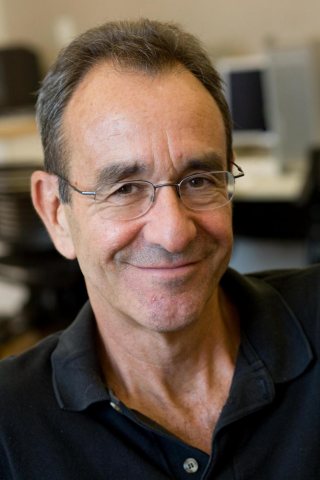
Archive Copy.
The Secret History of Methods
I am regularly asked “What’s the latest method,” suggesting that the concept of method persists, despite recent attempts to bury it (“The method concept is dead!”). Drawing on an extensive archive of language teaching textbooks, I will review the history of methods, and in so doing, will argue that the prescriptive concept of method is less useful than the descriptive concept of methodology, i.e., what teachers actually do, rather than what they are obliged to do.
I will also attempt to show that the history of methods is best construed, not as a linear progression, but as cyclical, and that, as Kelly commented as far back as 1969, “old approaches return, but as their social and intellectual context are changed, they seem entirely new.” I will then extrapolate some core parameters, different configurations of which help define and differentiate language teaching methods, and I will apply this descriptive framework to a relatively “new kid” on the methodological block, the Dogme/Teaching Unplugged movement (Meddings & Thornbury, 2009), founded on the belief “that language learning is both socially motivated and socially constructed” and whose proponents “are looking for ways of exploiting the learning opportunities offered by the raw material of the classroom, that is the language that emerges from the needs, interests, concerns, and desires of the people in the room.”
At the same time, I will make the point that Dogme might best be considered as neither method nor methodology, but as a tool for self-directed teacher development.
Biographical Sketch
Scott Thornbury has an MA (TEFL) from the University of Reading and is currently Associate Professor of English Language Studies at the New School in New York, where he teaches on an on-line MATESOL program. His previous experience includes teaching and training in Egypt, UK, Spain, and in his native New Zealand. His writing credits include several award-winning books for teachers on language and methodology, including About Language: Tasks for Teachers of English (Cambridge University Press), How to Teach Grammar, How to Teach Vocabulary and How to Teach Speaking (Pearson), Uncovering Grammar, Beyond the Sentence and An A-Z of ELT (Macmillan) and Natural Grammar and Grammar (Oxford University Press). He has also contributed to a number of handbooks on language and methodology, including the Routledge Handbook of Corpus Linguistics (2010), and The Routledge Handbook of Applied Linguistics (2011). His most recent book, Teaching Unplugged (Delta Publishing; co-written with Luke Meddings) won a British Council Innovations Award (ELTON) in 2010. He is series editor for the Cambridge Handbooks for Teachers.
Scott Thornbury is sponsored to KOTESOL 2012 by The New School
Watch Scott Thornbury discuss Grammar here.
20-20 Session
Is There Discourse in This Course?
The term discourse eludes neat definition, and embraces a wide range of linguistic and social phenomena. In this workshop, I will distinguish three basic senses – the formal sense: discourse as connected text (or discourse1), a functional one: discourse as language in use (or discourse2), and discourse as social practice (= discourse3). Traditionally, language teaching has tended to ignore all but the first of these senses, focused as it is on teaching the discrete systems of grammar, vocabulary, and pronunciation, as embodied in well-formed sentences, while reserving the treatment of whole texts for “skills” practice. Language at the level “beyond the sentence” is considered too messy to be taught systematically. Yet the goals of language teaching are the production and understanding of whole texts, whether spoken or written. Using a relatively new genre of written texts, and combining traditional discourse analysis with the use of freely-available corpus analysis tools, I will demonstrate how texts not only realize the three “levels” of discourse outlined above, but how such an analysis can serve the needs of second language writers.


